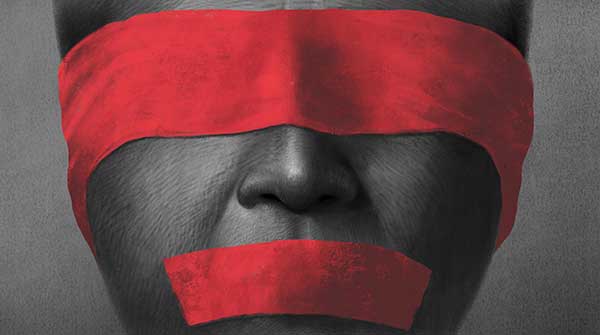Is CRTC overstepping? Is Canada’s democracy and our personal freedom at a crossroads?
 Governments have a role to play in a free society. The main bone of contention has long been how much of a role they should actually have.
Governments have a role to play in a free society. The main bone of contention has long been how much of a role they should actually have.
Many people on the left believe the government’s reach should be extended. Many people on the right believe it should be retracted. One train of thought that tends to resonate on both sides of the political spectrum is that the government should never overstep its boundaries and restrict our personal freedoms.
A recent announcement by Canada’s regulatory organization for broadcasting and telecommunications threatens to do just that.
The Canadian Radio-television and Telecommunications Commission recently started the process of forcing some online streaming and podcasting services to register with them. “Online streaming services that operate in Canada, offer broadcasting content, and earn $10 million or more in annual revenues will need to complete a registration form by Nov. 28, 2023,” the CRTC announced on Sept. 29.
| Related Stories |
| Bill C-11 raises concerns over online freedom
|
| Opposition to Trudeau’s censorship bill swells
|
| The Liberals are masters of misinformation and disinformation
|
It would also be setting the conditions for online streaming services to operate in this country. These would require “certain online streaming services to provide the CRTC with information related to their content and subscribership,” the news release outlined. “The decision also requires those services to make content available in a way that is not tied to a specific mobile or Internet service.”
The CRTC also mentioned that “a third consultation is ongoing. It considers contributions traditional broadcasters and online streaming services will need to make to support Canadian and Indigenous content. The CRTC will hold a three-week public proceeding starting on Nov. 20, 2023, and will hear from 129 intervenors representing a broad range of interests.”
God knows what will come out of these discussions.
Hold on, some of you may be thinking. The CRTC isn’t a government ministry. It’s not part of the government caucus, either. Regardless of whether we agree or disagree with their proposals and methods, how does this announcement impact the relationship between government and personal freedom?
You have to look more closely at the entity.
The CRTC defines itself as an “administrative tribunal that operates at arm’s length from the federal government.” That’s true, but there are other factors to consider. It’s under the specific jurisdiction of the Government of Canada. It reports to the House of Commons through the Minister of Canadian Heritage. It works informally with Industry Canada with respect to the Telecommunications Act. It regulates activities related to Canadian broadcasting and telecommunications, including Canadian content rules.
While this public organization may theoretically work at arm’s length from Ottawa, the rules and regulations it sets directly affect Ottawa’s long and overbearing political arm.
Hold on again. Most online streaming and podcasting services don’t have annual revenues of $10 million or more. Wouldn’t this mean that very few individuals and companies would ultimately have to register with the CRTC?
Yes, for now. It could be very different before long.
Let’s consider some analysis by Prof. Michael Geist, the Canada Research Chair in Internet and E-Commerce Law at the University of Ottawa and one of our nation’s finest experts on intellectual property.
In an Oct. 2 blog post, Geist acknowledged that “the information itself may be limited, but the implications and obligations carry some significance.” How so? “From a speech perspective,” he wrote, “the regulator is effectively saying that a podcaster or news outlet that generates a certain threshold of revenue must register with the government, a position that runs counter to freedom of expression rights without government interference. The Commission’s repeated response to this concern is that many won’t actually be caught given the monetary threshold, which does not address why anyone should be caught for these activities.”
Exactly so.
The CRTC’s announcement runs completely counter to freedom of expression in Canada. I would even suggest it stymies free speech to an extent. The small number of high-revenue podcasters and news outlets that currently fit under these new conditions will surely be subjected to extensive regulations. The CRTC, federal government or both will likely limit or restrict their overall content, commentary, opinion and messaging, too.
It’s also important to keep this in mind. The CRTC may only be going after a few online streaming and podcasting services right now. It could potentially go after many more in the near future.
This situation isn’t healthy for freedom of speech, expression, thought and more in Canada. It’s not healthy for intellectual discourse and the need to discuss and debate issues in a civilized manner in the Great White North. And it’s not healthy for a country that has always claimed to be a functioning democracy.
Michael Taube, a Troy Media syndicated columnist and Washington Times contributor, was a speechwriter for former Prime Minister Stephen Harper. He holds a master’s degree in comparative politics from the London School of Economics.
For interview requests, click here.
The opinions expressed by our columnists and contributors are theirs alone and do not inherently or expressly reflect the views of our publication.
© Troy Media
Troy Media is an editorial content provider to media outlets and its own hosted community news outlets across Canada.

